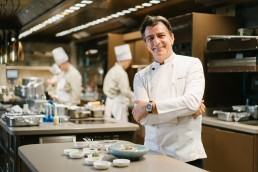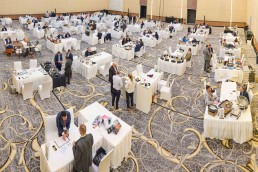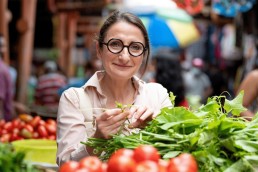How have three childhood friends grown Experimental Group from one cocktail bar into a home for some of the world’s top bartenders, chefs and hoteliers? Heleri Rande finds out.
When childhood friends Romée de Goriainoff, Pierre-Charles Cros and Olivier Bon opened their first venture – Experimental Cocktail Club on Paris’ Rue Saint-Sauveur – little did they know how quickly the business would grow into a hospitality empire. Now, 11 years later, Experimental Group has no fewer than 17 active venues in its portfolio, ranging from cocktail, wine and beach bars to restaurants and hotels. The group has gone international too; it already boasts sites in Paris, London, New York and Ibiza, with further openings in Verbier, Venice, Menorca and Lisbon on the horizon.
Such rapid growth begs an obvious question: what is it about these three young Frenchmen that ensures they are flourishing where so many others have failed? Part of the answer lies in their innate sense of hospitality; extremely relaxed and welcoming, the trio clearly practice what they preach. “The Experimental style of service is unique and known by our clients across the globe,” remarks Bon. “You simply have to cross the threshold of one of our properties and be greeted by our staff to understand that you are in a unique place. This is because we have a certain style and way to serve clients, a savoir-faire that is inviting, relaxed and professional.”
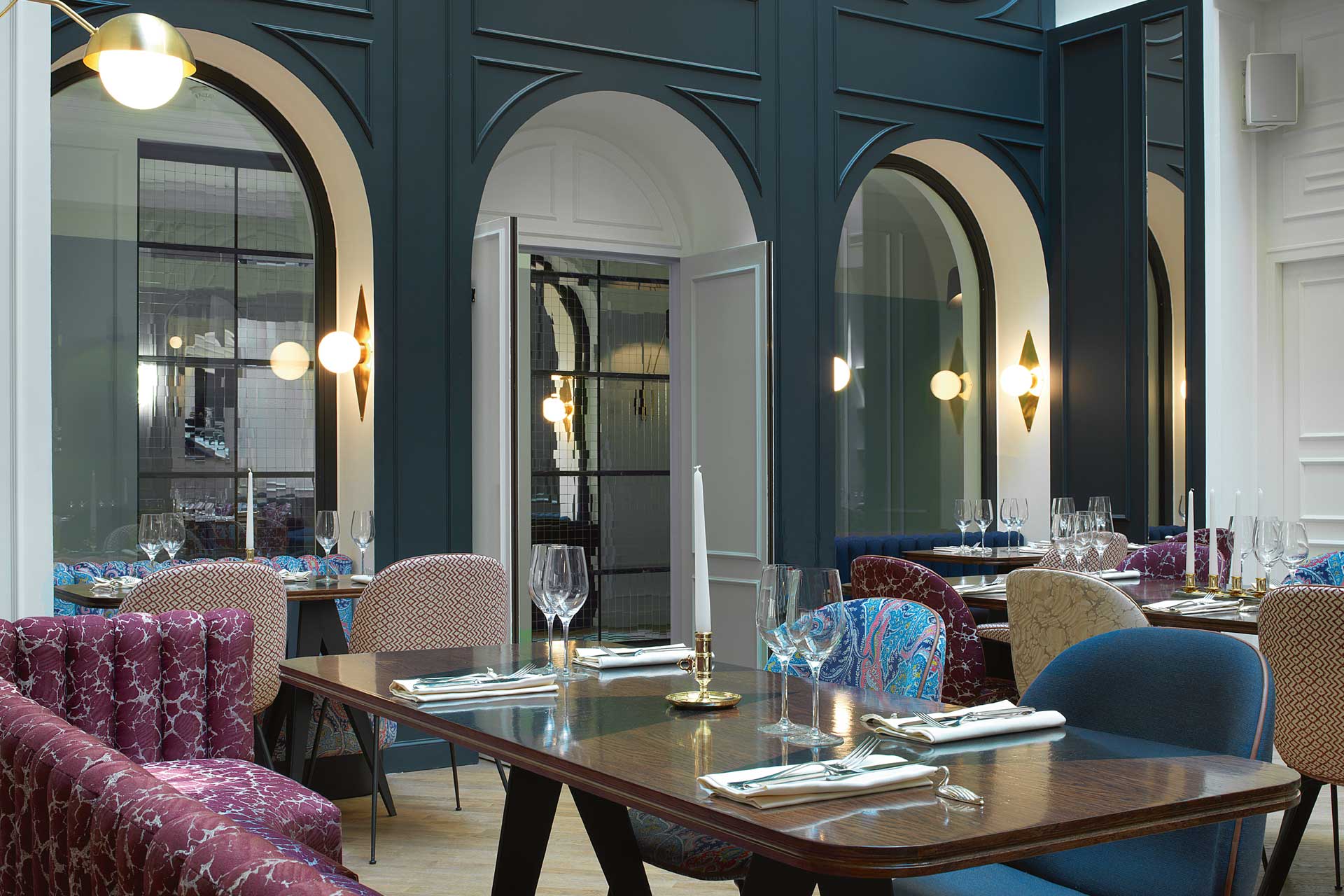
It is an approach that resonates across different markets; the group’s debut restaurant Beef Club opened in Paris in 2012, its first beach club followed in Ibiza in 2013 and inaugural hotel project Grand Pigalle Hotel landed in Paris in 2015. “The great thing is that every time we’ve gone into a new category of hospitality, a big success has followed that resonates around the world, helping to build the brand,” says Goriainoff. Next up on the agenda is the Fabrizio Casiraghi-designed Experimental Chalet in Verbier, the group’s reimagining of an Alpine escape, featuring 39 guestrooms as well as a restaurant, cocktail bar and club, spa, hammam and solarium. The new hotel, which is due to open in December 2018, will also take over the holiday resort’s iconic Farm Club, the late-night locale that has welcomed the likes of David Bowie and Diana Ross to its famous dance floor down the years.
It seems as though the trio are reaping the rewards of their singular technique for identifying future business partners. “Over the years, we have built a natural network of people who we like,” explains Cros. “And we like to have a personal relationship before it turns into a business relationship. If we ask someone to work with us, it is because we really love what they do.” A recent example of this dynamic in action is the group’s collaboration in Verbier with chef Gregory Marchand, the owner of celebrated restaurant Frenchie on Paris’ Rue de Nil and its UK counterpart in London’s Covent Garden. “We have known Greg for years, and are regular clients of his restaurants as well,” Goriainoff continues.
In general, though, the founders do not subscribe to the widely held notion that hotel restaurants need to collaborate with celebrity chefs in order to be a success. Rather, the consensus seems to be that bringing in a celebrity can be more of a hindrance than anything else, although they do concede that there is value in having chefs who are recognised within their own circles. “We need more than a chef; we need a concept,” explains Goriainoff.
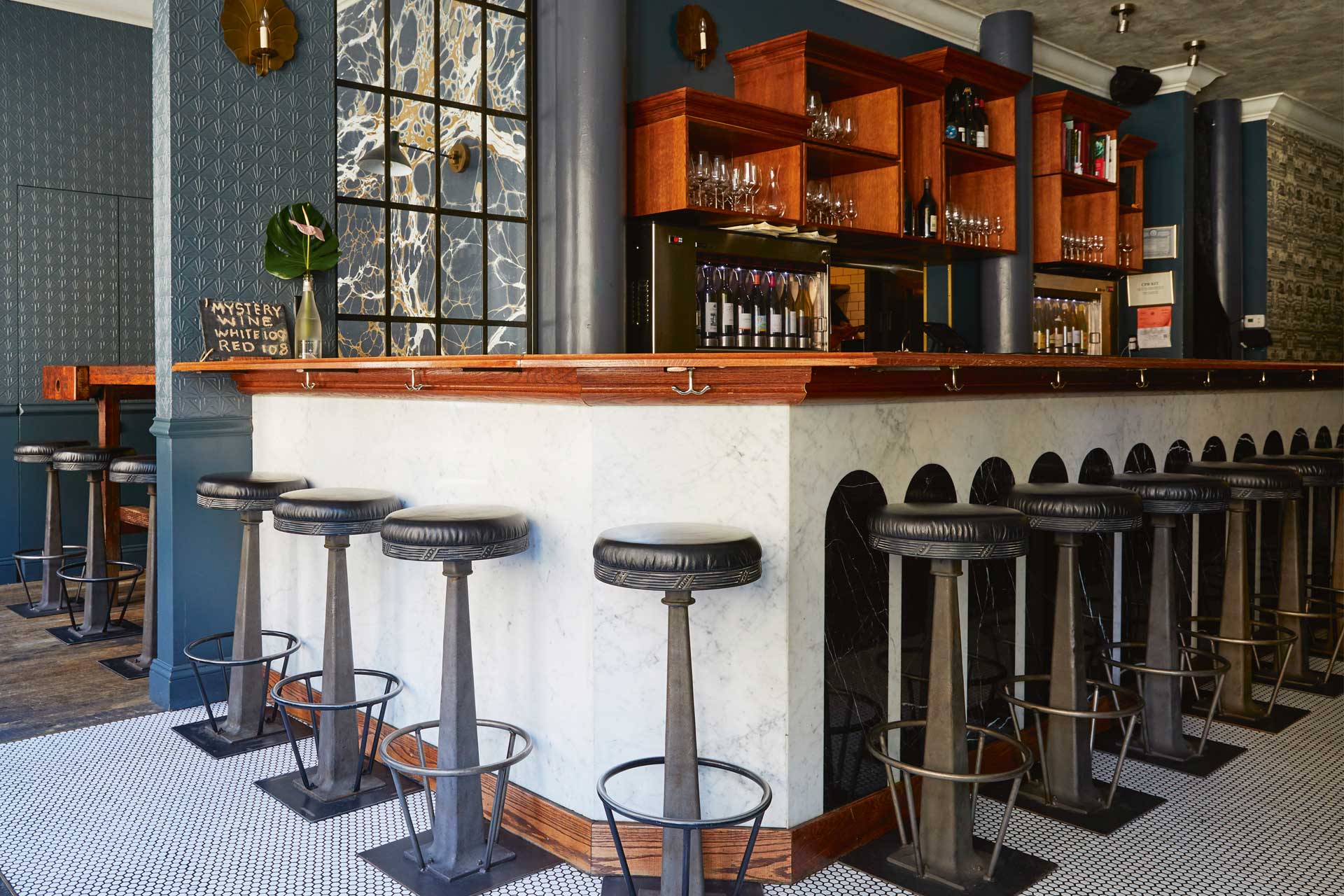
The group currently has three hotels in operation, Grand Pigalle and Grands Boulevards in Paris and Henrietta in London, with a different F&B offering at each. In Paris, chef Giovanni Passerini has created a more casual wine bar-style, sharing-menu concept for the Pigalle property and a full-scale restaurant at Grands Boulevards offering French-Italian country cooking. The story for Henrietta’s F&B, meanwhile, took a different turn at the beginning of this year with the departure of chef Ollie Dabbous. The recently launched Henrietta Bistro concept is headed by chef Sylvain Roucayrol, who joined from sister site Compagnie des Vins Surnaturels in Seven Dials, and the casual menu takes inspiration from the Basque Country as well as Corsica and the Catalan region. “The change was a disruption but we wanted to move closer to our clientele,” explains Cros. “And we want to be the opposite of fine dining, a lively place,” adds Goriainoff.
Given that the three visionaries started in the spirits business, it comes as no surprise that each hotel has a strong bar programme, although Goriainoff admits that the younger bartenders do sometimes need to be kept in check as their creative impulses can easily backfire. “The younger guys want to overcomplicate cocktails, occasionally doing more for their colleagues than for the customer,” he says. “It is important to remind them to put the client in the centre. You can’t forget that sometimes people just want to have a simple cocktail.”
“We like to have a personal relationship before it turns into a business relationship. If we ask someone to work with us, it is because we really love what they do.”
Pierre-Charles Cros
What about their approach towards wine programme curators and group sommeliers? Having introduced a completely new offering to the New York wine scene when they launched Compagnie des Vins Surnaturels in 2014, the founders are very careful to not pressure their staff, but instead let the experts do their job without interference. There are discussions and tastings, of course, but overall the management style speaks to the founders’ shared character traits – relaxed and flexible. “We have very passionate and dedicated sommeliers, it is hard to surprise them,” observes Goriainoff.
Talking about the roles and responsibilities of the ownership group and how each partner contributes to the team, there really are no clearly defined lines. Cros and Goriainoff, who live in London, focus more on business development and back of house, whilst Paris-based Bon looks after local operations, design and the savoir-faire of the group. Where they do draw the line is decision-making. “Every decision has to be taken by the three of us,” confirms Goriainoff. “If an opportunity comes up, we sit around the table, talk about the pros and cons, look at how we would structure the deals, and consider whether it makes sense for the brand.” Furthermore, when the Frenchmen decided to bring their concept to London in 2010 by opening Experimental Cocktail Club in Chinatown, Xavier Padovani joined the group. The current London portfolio includes the original outpost in Chinatown, Compagnie des Vins Surnaturels in Seven Dials, Joyeux Bordel in Shoreditch, Chess Club in Mayfair and Henrietta Hotel and Bistro in Covent Garden, which will see an additional 23 rooms open across the street from the current location by the end of next year.
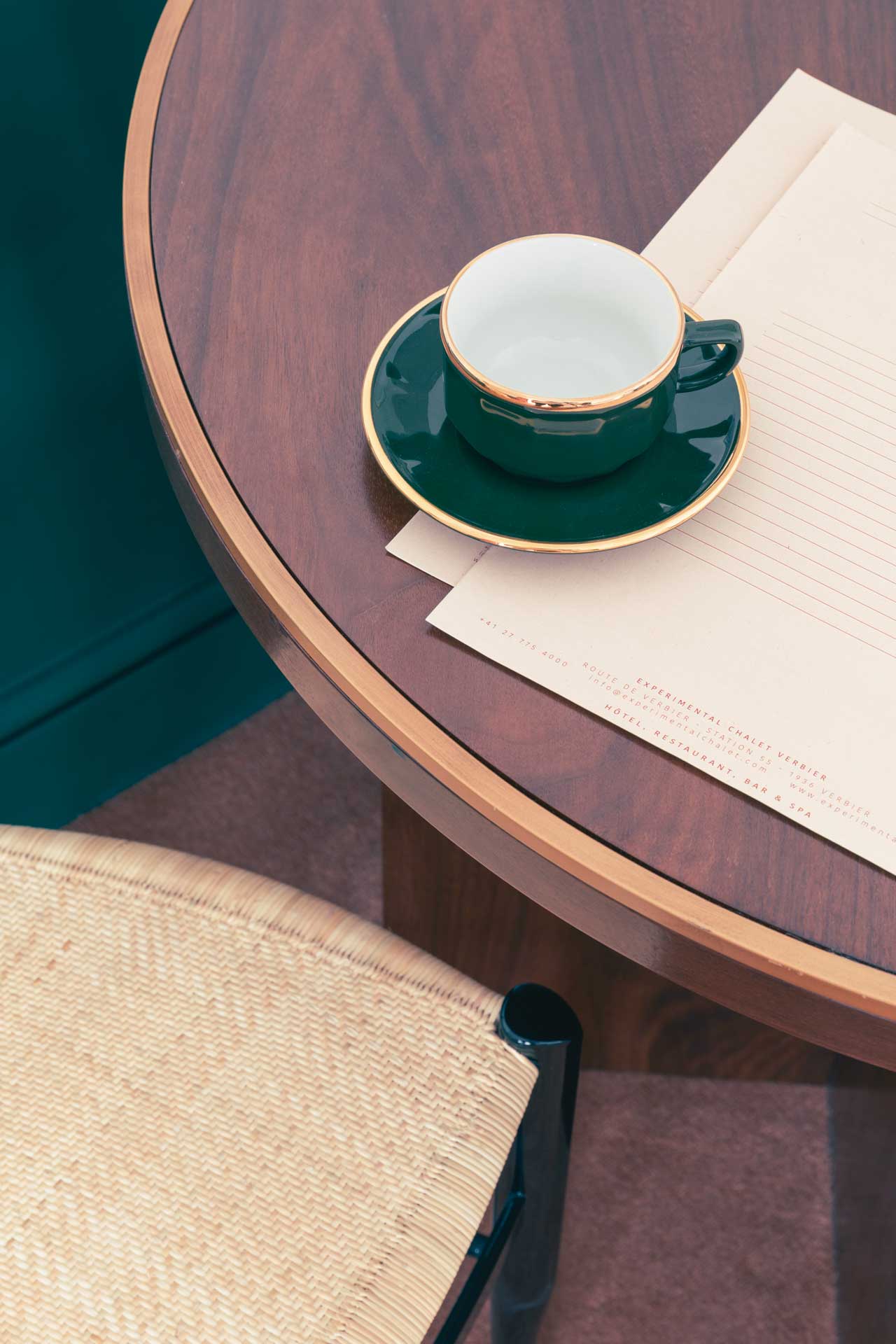
A testament to the brand’s strong allure for F&B professionals, the group enjoys a surprisingly low employee turnover, and its focus on promoting from within means that many of its longstanding members of staff have now made it into management-level roles – the majority of whom are women. “It was not something we were consciously striving for, but we got the best talent and they happened to be women,” recalls Goriainoff. This open-minded approach is also evident in how the founders partner with designers. “We are proud of the different designs for each of our projects and are involved in the process step by step,” explains Bon. “The idea is to allow full creative autonomy to designers like Dorothée Meilichzon and Fabrizio Casiraghi, while contributing our style of welcoming, non-ostentatious luxury comfort that makes you want to stay even longer.”
Scaling up any business is not without its challenges, however, and the founders are fully aware of the need to implement changes on both the staffing and operational fronts in order to better structure the growing company. They have also been floating the idea of developing a full training programme for staff. But what is striking to hear in today’s economic climate is just how passionate the founders are about making F&B work within a hotel space, which perhaps reflects their conviction that having rooms provides more scope to make projects financially viable. “It is very difficult to make money in restaurants – we manage to do it, but we have never seen competition like this. You fight for every penny, but in hotels you have more synergy,” says Goriainoff. “It is about an experience, we are the Experimental Club after all,” adds Cros. “F&B in a hotel can take different shapes and forms, it does not need to be a restaurant, but it needs to make sense for the local environment.”
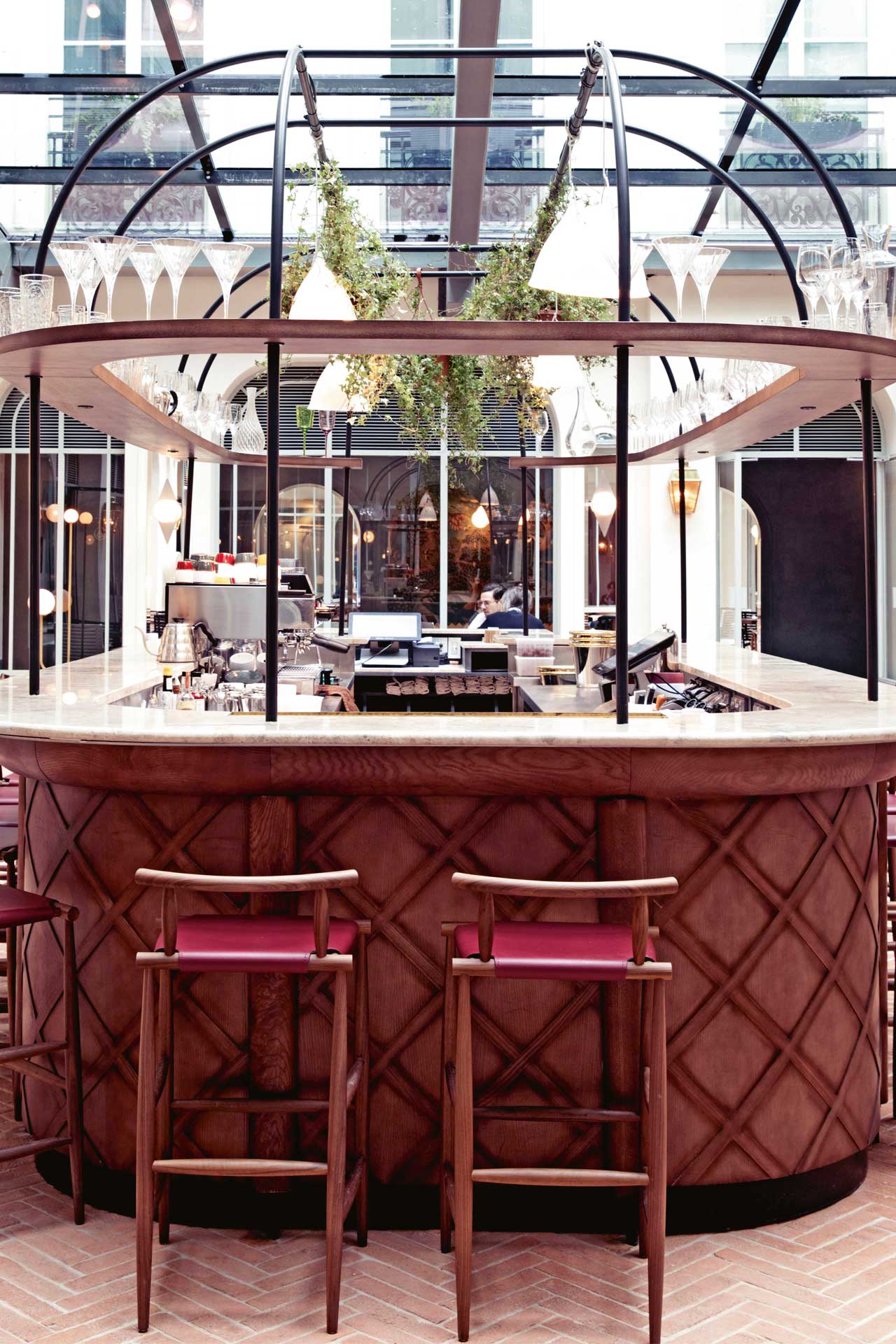
The founders are also well aware that the primary money-maker in the F&B sector is usually the B element, which gives the group a clear advantage in the hotel marketplace. “For cocktails, you can charge because people are buying an experience more than anything, but spending £30 on a meal is too expensive,” reflects Goriainoff. Some of this comes down to pure economics, with the restaurant category having become incredibly saturated in many western markets. “Eventually this is like a clean-up, some will go out of business, and others will suffer for many different reasons,” concludes Cros.
When conversation turns to the potential impact of rapid change in the hospitality market, meanwhile, the young hoteliers are much more optimistic than some of their more senior corporate counterparts. Fear of the likes of Airbnb and Deliveroo taking business from hotels and restaurants has not particularly shaken the group. On the contrary, the founders believe that innovators such as these have disrupted the market in a good way and essentially cater to a different clientele anyway. “We bring an experience, that is what they don’t offer – a human being looking after you,” says Cros.
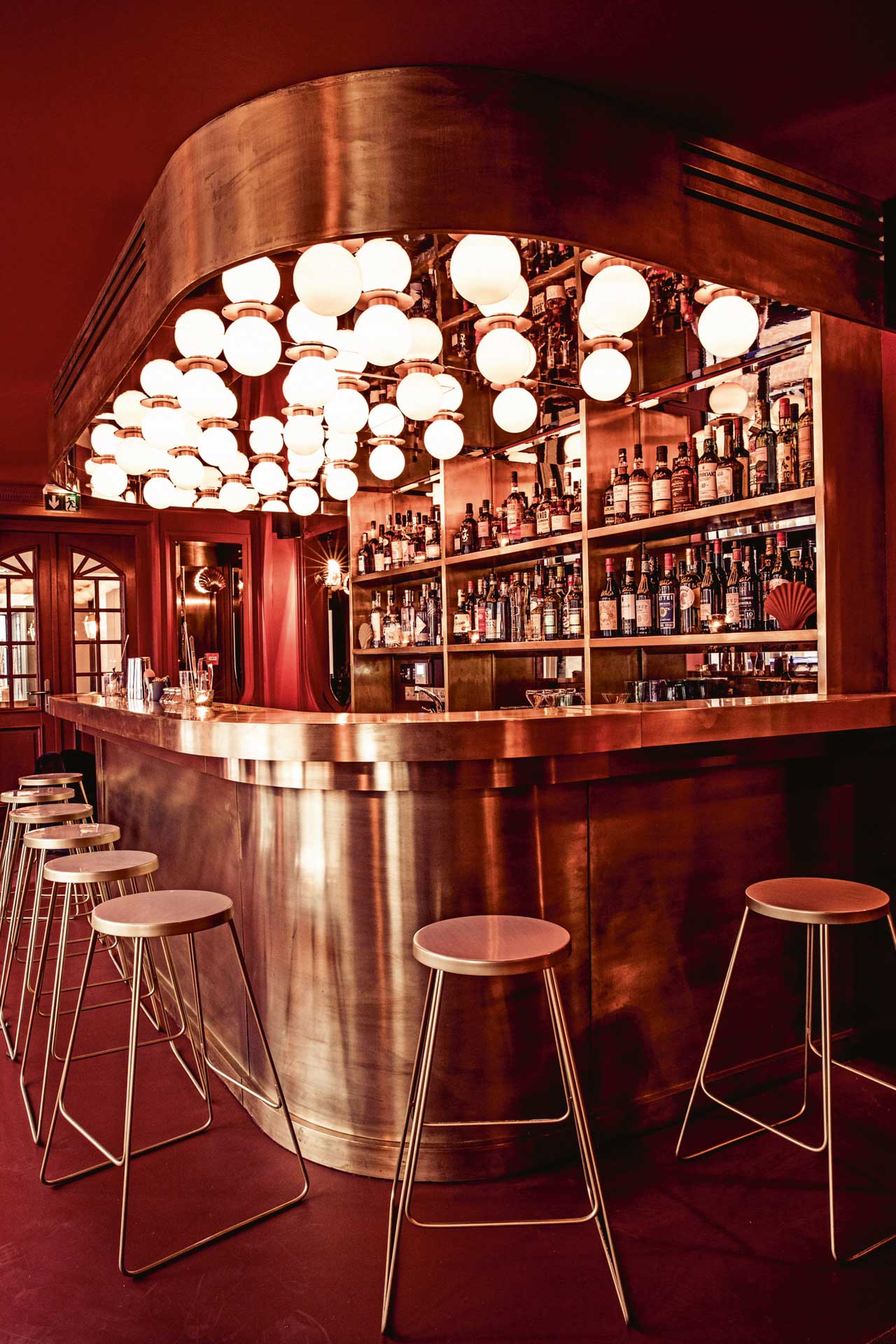
Coming from an F&B background and having started with just one cocktail bar has evidently given the trio a real edge over other hotels. Moreover, their decision to reinvest profits into the business presents the founders with considerably more expansion opportunities. Naturally, the pros and cons of each new venue have to be properly debated internally, but so far their healthy approach to risk and reward has led them to roll out to a number of different locations and be successful at every point. Goriainoff does not shy away from admitting that in the future they might consider a more asset-light model, but it seems that they have not quite reached that point yet. “Under one roof, with an extended team, we have more resources – so we can express ourselves in every direction,” says Cros. “That is our focus now.”
Looking ahead to the future, it would appear that nothing can stop the ambitious entrepreneurs from taking on the rest of the world together – their ultimate dream is to have hotels in every city that they love. Clearly, Goriainoff, Cros and Bon do not lack ambition and are still full of ideas, so you certainly would not bet against their experimental approach to hospitality serving them well for many years to come.
CREDITS
Words: Heleri Rande
Photography: Courtesy of Experimental Group
Magazine: Supper 12
Related Posts
18 April 2023
A New Level: An interview with Yannick Alléno
17 November 2022
